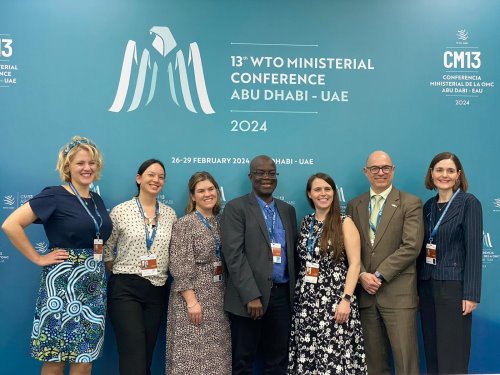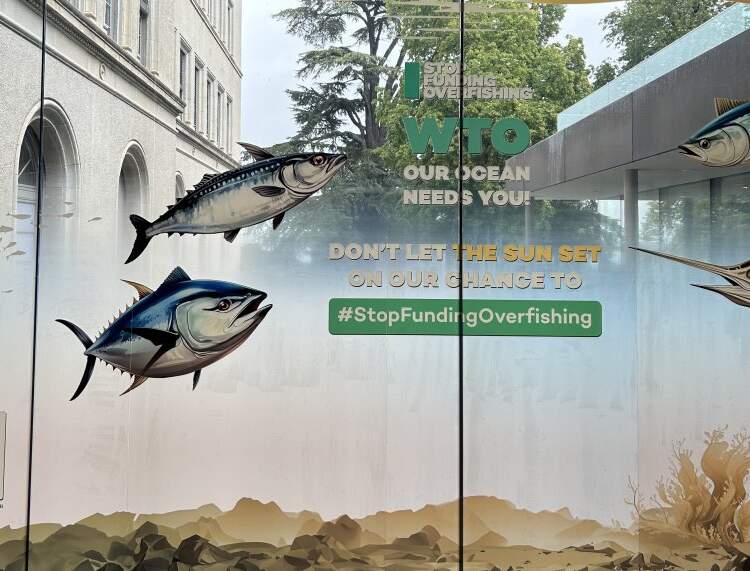
Changemakers of the coalition ‘Stop funding overfishing, stop harmful fisheries subsidies’ at MC13
Today, as during the past Ministerial Conference (MC13), the vast majority of members of the World Trade Organization (WTO) is supportive of the draft text on the second more substantial agreement to do away with harmful fisheries subsidies. These have been estimated at USD 22.2 billion per year in 2019 (1). These harmful subsidies are driving overfishing beyond regenerative capacities of many resources. More than 80% are dished out to industrial fleets, thus financing fuel intensive long-distance fishing which often snatch resources from coastal artisanal fisheries, e.g. in Latin America and Africa. The distortions provoked by these harmful subsidies are deeply unjust.
The official representative of India in Geneva has held out during all conversations this year that the text can not be supported in its present form. Given the consensus modus in which decisions get generally taken in UN organisations, the item has been taken off the agenda of the General Council at the end of 2024. It frustrates many members who would like WTO finally to deliver on the mandate received more than 20 Years ago to stop harmful fisheries subsidies. This was renewed in target 6 of Sustainable Development Goal 14. But that deadline, set for 2020 has been overshot by four years now.
To overcome the hiatus, India has raised the point a few days back that harmful subsidies should not be handled as total amounts by country, but on a pro rata basis for the number of fishers benefiting. It argues that the per capita amounts of subsidies in India are much smaller than the subsidies for few industrial vessels e.g. in countries with long-distance fleets and suggests that support to its small-scale fishers does not constitute a capacity enhancing harmful subsidy, while financial support particularly to distant water fleets must be considered capacity enhancing and thus harmful.
Being more lenient for small-scale fisheries is part of the consensus. But likewise, in a situation where resources are already fully exploited or even overexploited it is not a good idea to attract more entrants into small-scale fisheries, as may have happened in some countries in the past. If that were the case, it would really commit small-scale fishers and their families to poverty and further reduce the resilience and productivity of affected ecosystems. A vicious cycle. The detailed analysis of Sumaila and co-workers in 2019(1), indeed does suggest that about 2/3 of India’s total annual subsidies of about USD 277 million to the sector as a whole are considered capacity enhancing.

So, what then drives the opposition of the Indian delegation to deny a consensual conclusion? Whatever the reason, be they rooted in internal politics, further substantive dissatisfaction with the substance, or perhaps to signal unhappiness with the slow progress in other agenda items at the WTO India is particularly keen on, the attempts at a constructive dialogue need to continue. Hopes are now pinned at the MC14 in Cameroon in early 2026.
(1) Sumaila, U.R., et al. (2019). Updated estimates and analysis of global fisheries subsidies. Marine Policy, 109:103695
